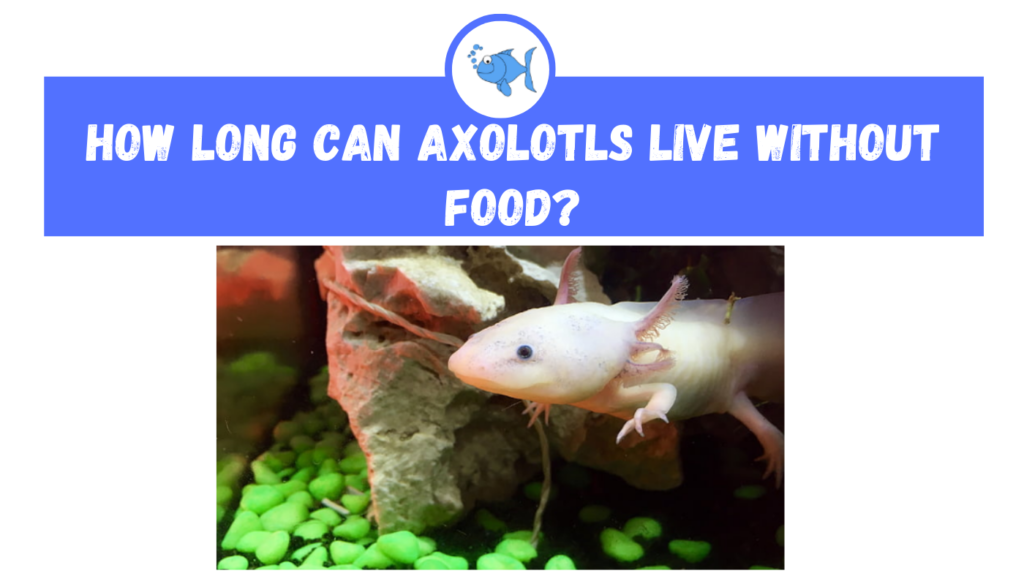Axolotls are relatively simple creatures when it comes to what and when they eat. It surprises many people to learn how little food axolotls really need to maintain proper health and nutrition. In this article, we’ll explore the nutritional needs and limits of axolotls, including exploring how long they can live without food.
We’ll additionally provide some axolotl care tips, discussing things to keep an eye out for when evaluating your axolotl’s nutritional habits and how to know if your axolotl is being underfed.
How Long Can Axolotls Live without Food?
Axolotls are able to survive up to three weeks without any food at all. However, this is an average, so your axolotl might survive a little longer or shorter without food.
Also, it can be detrimental to an Axolotl’s health if they consistently go long periods of time without being fed. While one instance of not feeding them for a couple days is fine, multiple instances can be dangerous.
How Often Should You Feed Your Axolotl?
Axolotls are quite flexible when it comes to food. They have very slow digestive systems, meaning they are able to extract the nutrients they need from food and sustain themselves for very long periods of time.
In order to be healthy and happy, axolotls should be fed once a day. However, younger Axolotl’s will require two meals a day, and older axolotls (larger than 6 inches) only need to be fed every other day.
This will provide them with enough food to keep their content without overfeeding them.
Overfeeding is an issue of its own and can lead to a multitude of different health issues and complications. You can find out how much your axolotl needs to eat by observing how much food it is able to consume in three minutes.
Any leftover food should be removed from your axolotl’s habitat and then you can base further portions on that. An overfed axolotl can develop further health issues that can significantly impact its quality of life. While axolotls can’t get get depressed, overfeeding them can definitely stress them out.
You can tell if your axolotl is overfed by looking at its stomach. If its stomach is larger than its head in width and plumpness, your axolotl is consuming more food than it needs. You may also notice your overfed axolotl is swimming less and floating more. This is due to the extra weight it has put on interfering with its buoyancy.
Also, your axolotl tank can become cloudy if there is a lot of uneaten food left in the tank.
How to Tell if You’re Underfeeding Your Axolotl?
Even though axolotls can last up to three weeks without eating any food, this is incredibly unhealthy and dangerous. Axolotls don’t need to eat a lot, but they do need to eat. If you are worried that your axolotl is being underfed, look out for the following symptoms.
An axolotl that is underfed will display various symptoms ranging from changes in their appearance to behavioral changes. Your axolotl may appear slow and sluggish and not engage in their environment as they would normally.
Furthermore, they may seem withdrawn and fatigued. Their physical appearance may appear weak and thin. If their stomach is thinner and less plump than their head, they are likely not receiving the nutrition that they need.
There are also some impacts of underfeeding that you cannot see. However, they are still very impactful on the overall health of your axolotl. Underfeeding can cause your axolotl’s immune system to severely weaken, leaving them much more susceptible to illness or infection.
If you think your axolotl is being underfed, offer them more food. Axolotls are generally good at determining how much food they need and will eat if they are hungry.
Aside from food, you should also know how long an axolotl can go without a filter.
Final Thoughts
When it comes to food portions, axolotls are not very demanding. They eat very little, which often surprises people. They only need a relatively small amount of food due to their slow digestive systems.
You should only be feeding your axolotl with portions that it is able to eat in its entirety in three minutes. Furthermore, it is important to watch your axolotl’s appearance and behavior to make sure that it is getting enough food.
Axolotls can survive three weeks, if that, without food. However, any time beyond three days without food will be uncomfortable and unhealthy for your axolotl. It is important to be consistent and thoughtful with your axolotl’s feeding to make sure that they are happy and healthy.
